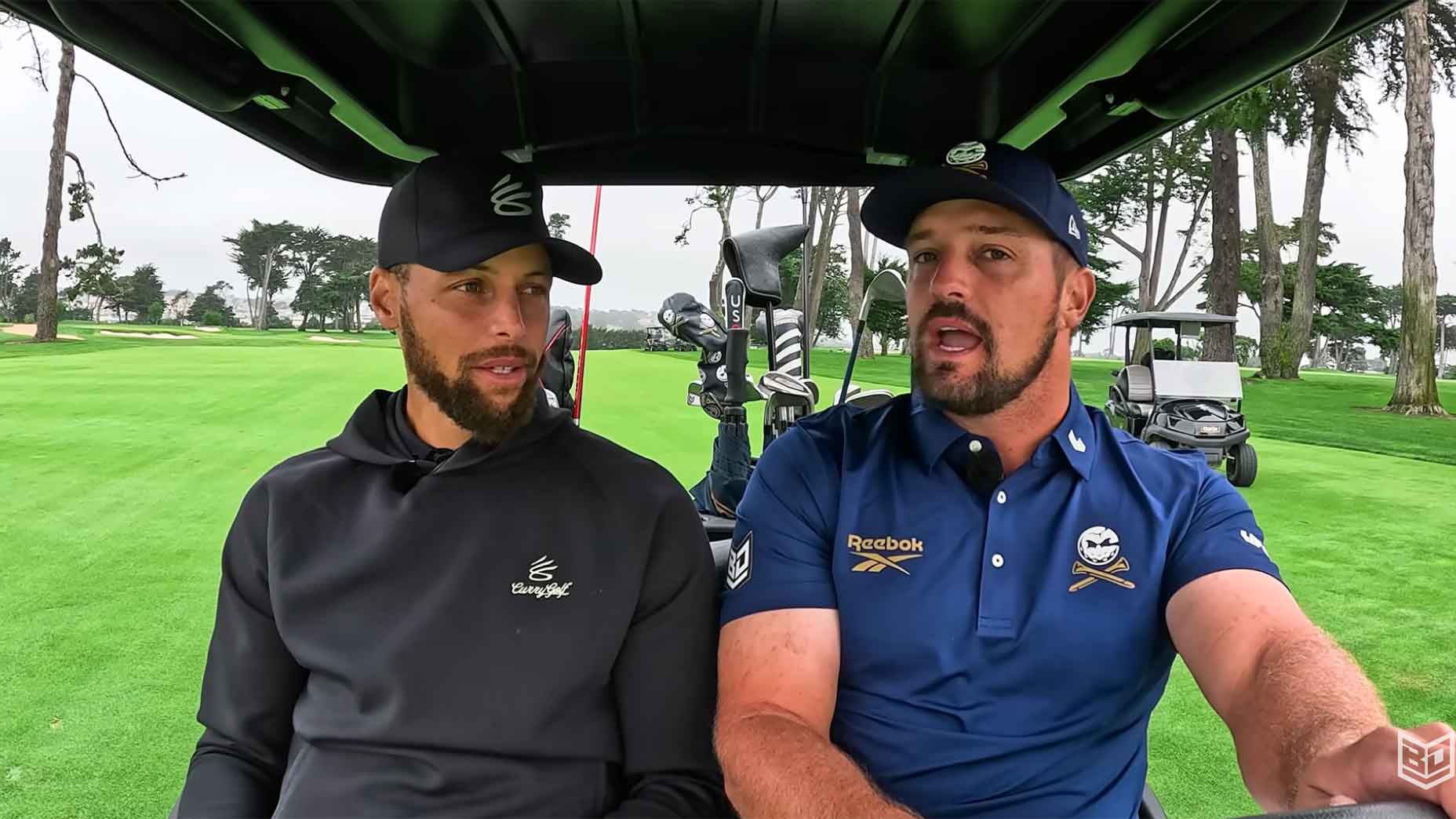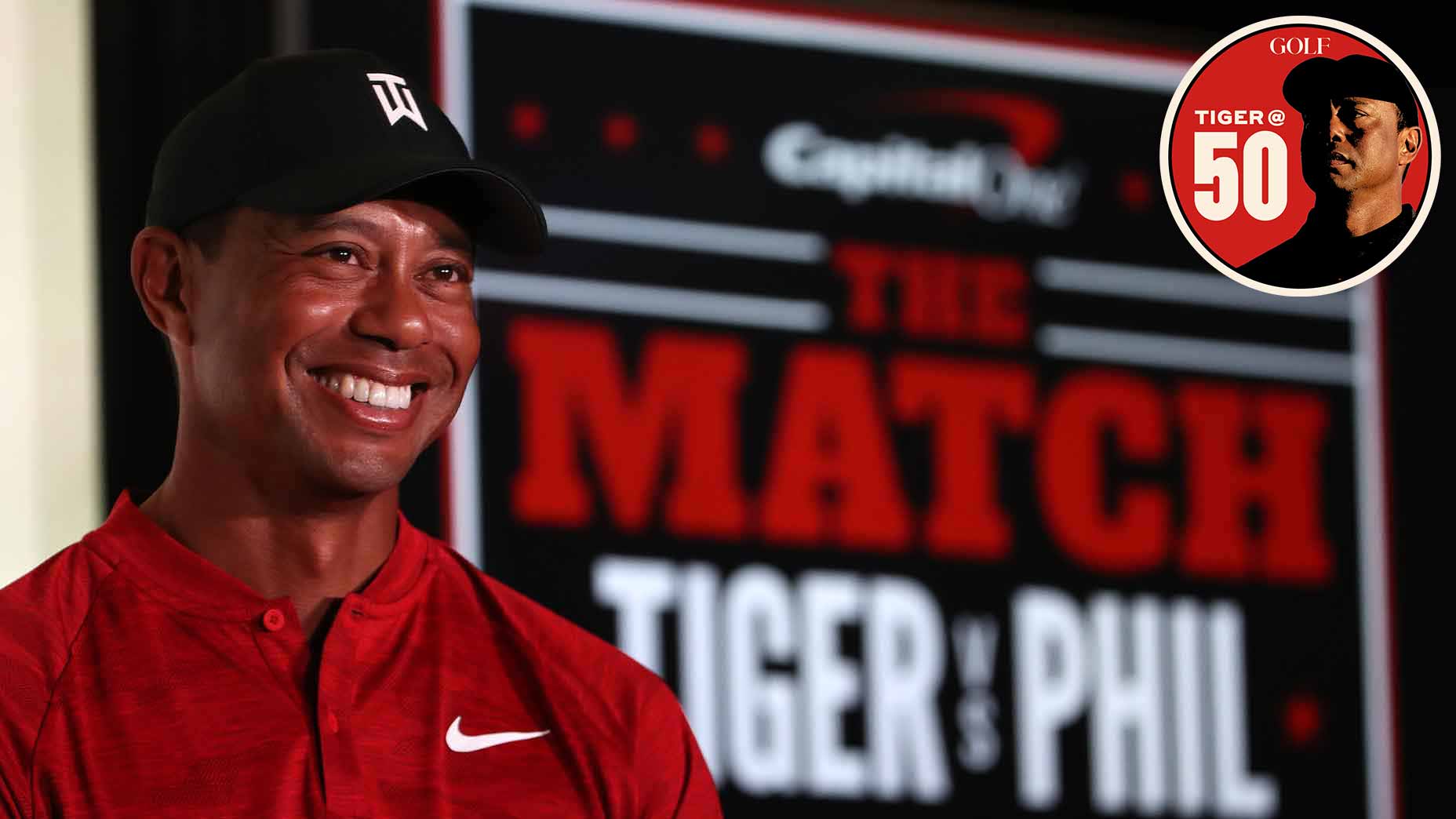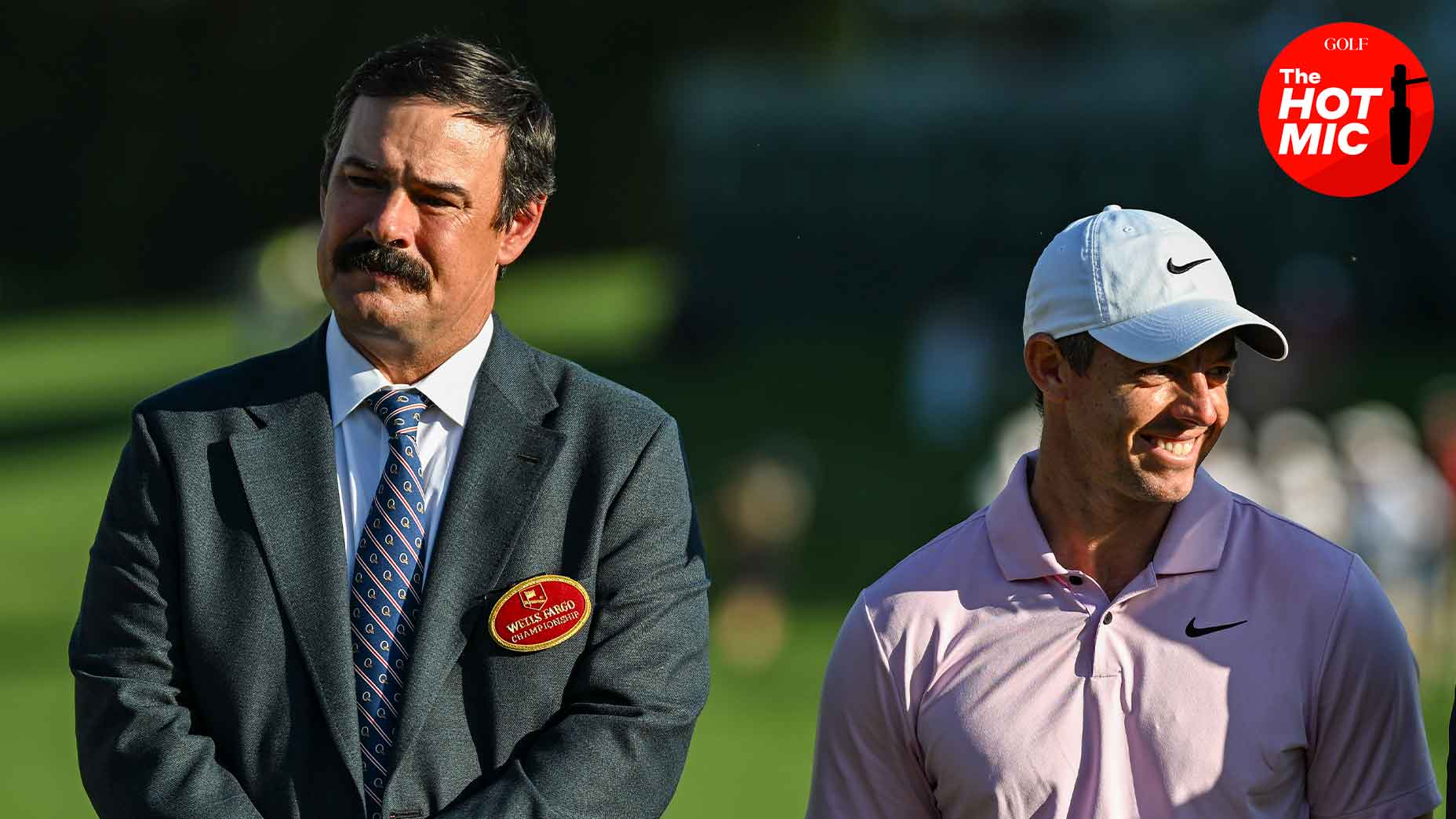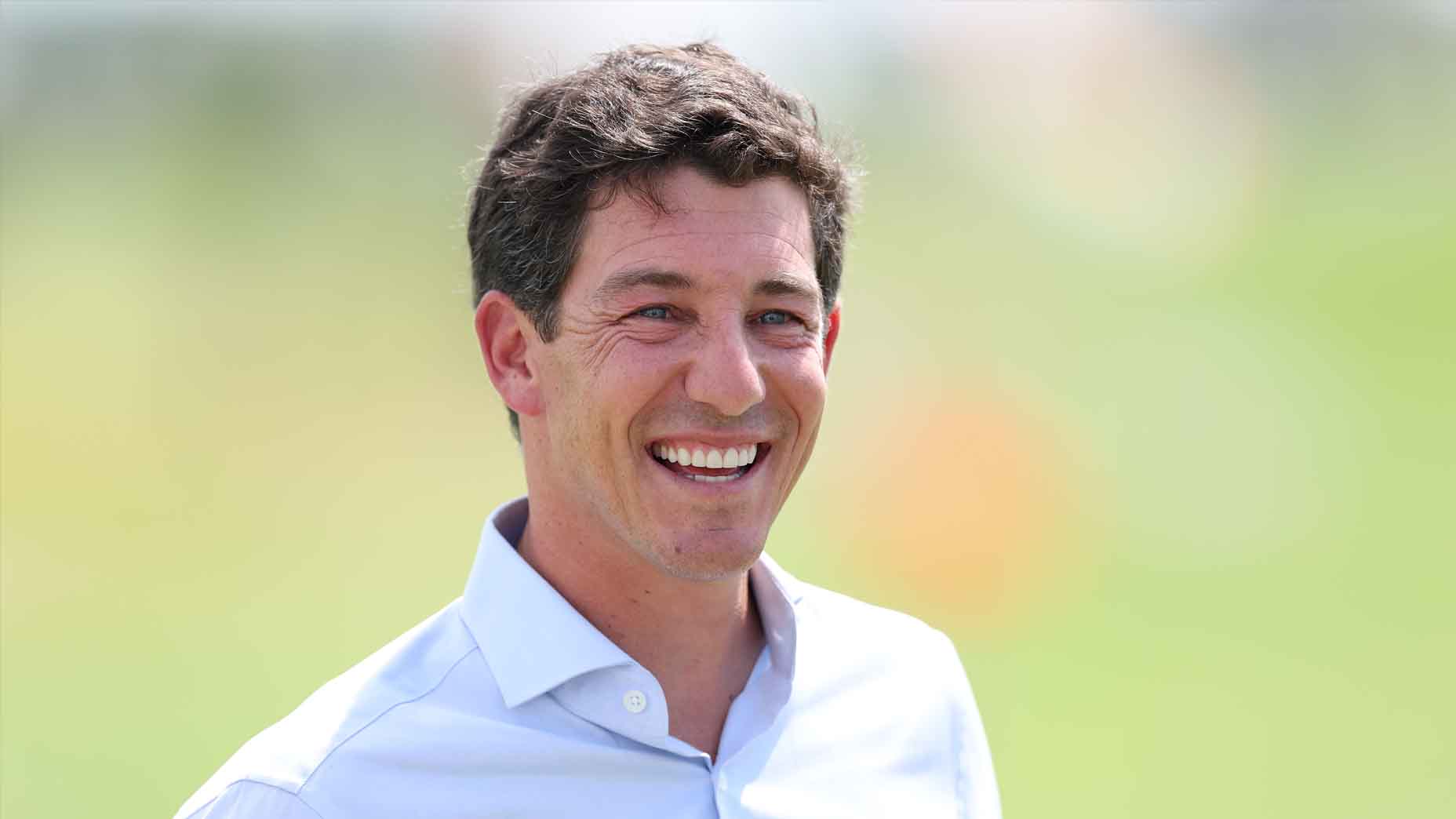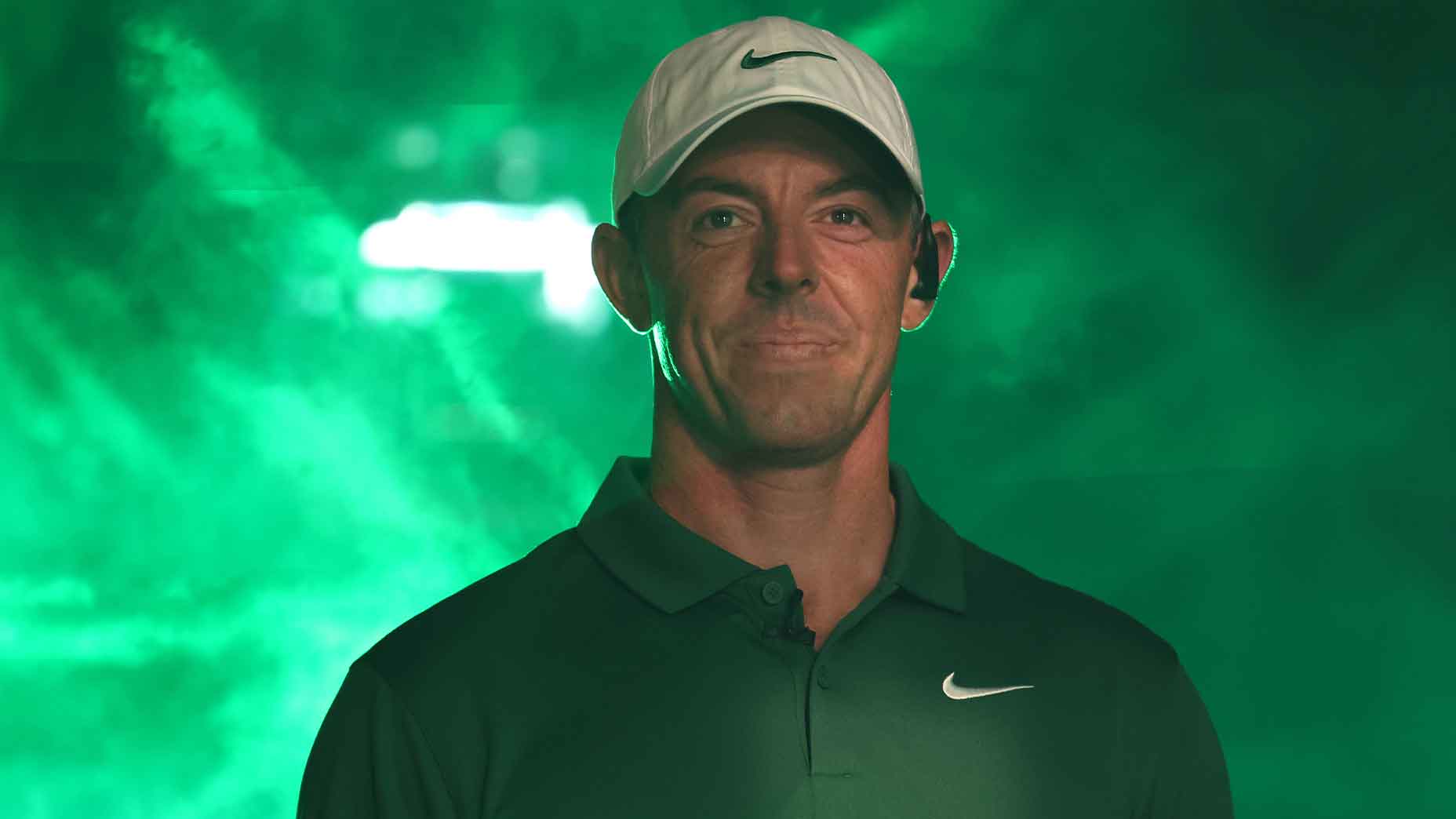PACIFIC PALISADES, Calif. — In the brief history of the CBS walk-and-talk interview, it’s possible there has not been a single answer better than Mackenzie Hughes’ on Saturday afternoon at the Genesis Invitational.
With a network audience of more than a million watching Hughes’ interview on the par-4 15th in primetime, Jim Nantz sensed an opportunity. Hughes had made on-the-record comments in Hawaii in January criticizing the obsession with money on the PGA Tour, and he had recently shared a similar sentiment with Nantz and co. at the AT&T Pebble Beach Pro-Am. As he reached the mouth of the green and his interview wrapped, the legendary broadcaster wondered: Would Hughes like to repeat himself?
“Mackenzie… I haven’t had the chance to tell you how much everyone here appreciated the comments you made about how much it means to you to play on the PGA Tour,” Nantz said. “For those who didn’t hear it, what were you trying to express in your heart?”
Hughes, to his credit, did not disappoint.
“I just think that it’s unfortunate where we are in the game right now, where it seems that it’s all about the money and it’s all about, how much money can I make?” Hughes said. “I think we lost the spirit of the game in the process, and it was just never the reason I played on the PGA Tour.”
As he reflected on the environment around him, Hughes repeated a point he’d made already: Golf was losing sight of the bigger picture.
“[I didn’t play on the PGA Tour] because I wanted to make millions of dollars, [I played] because I wanted to compete against the best players in the world, make an impact in the communities that we play, and that’s been the dream since I was a kid,” he said. “It seems that some of the guys have lost sight of that. And now we’re in a place where I think fans are just generally fed up with it, to be honest, and those are the people that drive our sport.”
Then, perhaps sensing the mic drop, he paused once more.
“I’d love to be able to appeal to the masses a lot more,” he said. “The way we’re headed right now is not it.”
Mackenzie Hughes shares his take on the current state of professional golf. pic.twitter.com/lJZqEdeSgd
— Golf on CBS ⛳ (@GolfonCBS) February 17, 2024
The moment was brilliant — distilling two years worth of golf controversy and fan resentment into the span of 35 seconds. And it came from a figure near the top of the leaderboard, in one of the biggest events of the season, during the precise window the audience was likely to be at its largest. (Nantz is many things, but tactless is certainly not one of them.)
Almost immediately, the clip of Hughes’ answer went viral, spawning a larger conversation on the golf internet about the role of money in professional golf and a rash of whataboutism in a certain social media echo chamber about the authority of any professional golfer on the subject of money.
By all accounts, it was a stunning success for CBS, for the walk-and-talk interview, and for the profile of a golfer like Hughes, whose level-headedness and integrity earned plenty of fans on Saturday afternoon. It was also the exact kind of success the new PGA Tour set out to achieve with its Signature Events series, where better access and better excitement and better tournaments result in a better Tour.
But, as the conversation around Hughes’ answer grew larger, it was hard to avoid a question about the role of the walk-and-talk in golf, and perhaps more importantly, Mackenzie’s role in it.
Was it worth it?
As golf enters its second full year in the walk-and-talk era, the conversation around the sport as an entertainment product (and the role of golfers in that entertainment product) has entered the centerfold. If the goal is to make everybody more money — as the $3 billion investment from the Strategic Sports Group demands — the work will have to focus on making golf less boring. There are lots of avenues to that end, be it through Collin Morikawa’s edict to “show more golf shots,” innovations like the walk-and-talk, or some other, non-TV pathway. But there is no avoiding that fundamental truth.
The problem, of course, is that golfers are generally prone to dullness. In a sport where individuality and single-minded focus are rewarded, the act of being unabashedly interesting is a vulnerable one, and, in the eyes of many players, a risk to the bottom line. The truth is that there is only one Tiger Woods — a superstar whose game is so unimpeachably spectacular that maintaining the public persona of a dryer sheet would improve his popularity. To be someone whose game is interesting because they choose to be interesting — an Arnold Palmer, Phil Mickelson or Rory McIlroy — you have to welcome the possibility that you may one day suffer because of it. Your sport as a whole will improve, but not in ways that your bank account (and trophy case) will actualize.
Which brings us back to Hughes. It is fair to wonder whether he, at eight under and seven strokes back of the lead, desired to be asked about thorny issues in golf in the middle of a tournament round. It’s also fair to wonder whether such a thing could unusually or unfairly affect his tournament performance. Relative to the other 50 players in the field who did not do CBS’s walk-and-talk and therefore were not subject to delivering a direct-to-camera plea for competitive integrity and community leadership, Hughes’ words could have placed him at a disadvantage for participating.
The point isn’t that Nantz and CBS are the villains of this situation. Nantz noticed something interesting about a player, something the player himself already spoke about publicly, and gave the player the platform to answer. Nantz was, in the most elemental and journalistic sense, doing his job.
In fact, we’re not even suggesting that Hughes was at a disadvantage. Truthfully only he can answer that. Hughes did what almost every educated golf fan would agree is the right thing by joining CBS’s walk-and-talk on Saturday afternoon, and his score might have suffered as a result. Does that make the system wrong for doing the interview? And what about Hughes?
Ultimately, collective action often requires individual sacrifice. It is what players in every other major sport face when dealing with union membership and collective bargaining, and it is the rude awakening facing many of the players who have been deluded into believing otherwise.
Golf as an entertainment entity won’t get better overnight, and it certainly won’t get better easily. This is why the behavior of some to frame the conversation around simple solutions is reductive and wrong. After all, if there were an obviously better path to profitability and excitement, LIV would already be doing it.
Rather, the path to a brighter future is menacing. The complicated solutions that raise the pot for everyone in the era of outside investment in golf will come at the expense of everyone, and not always evenly. (This order of thinking, it should be noted, is what led to McIlroy’s entirely voluntary 30-minute appearance on the CBS broadcast Sunday afternoon.)
The big problem facing the PGA Tour is not that some players will suffer unfairly, it’s that some believe they’ll avoid suffering at all. They’re wrong, of course, and it won’t be long until they realize as much.
The train is coming, and the Tour had better not be late.
You can reach the author at james.colgan@golf.com. To receive exclusives long before they reach the web, subscribe to the Hot Mic Newsletter below.




